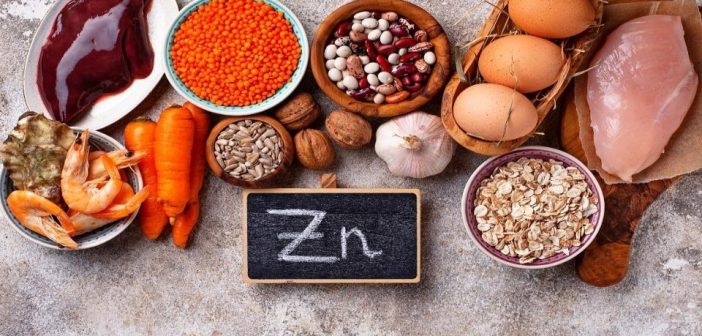Since the beginning of the pandemic, one thing that’s been clear about the coronavirus is that it can affect each person differently. And while a full-blown cure has eluded medical professionals and scientists thus far, they’ve also studied how certain vitamins and minerals that we have at our disposal could help patients lessen the severity of their brush with the virus–with some surprising success. You may have heard about the benefits of vitamin D and B vitamins when it comes to COVID. But now, it appears you might be able to add zinc to the list of supplements that could save you from COVID-19.
The findings of a new study on zinc and COVID-19, conducted in Spain over March and April, were presented at the 2020 ESCMID Conference on Coronavirus Disease (ECCVID). The researchers looked at blood samples from 611 coronavirus patients with an average age of 63, Health reports. Researchers then examined the zinc levels recorded in 249 of the patients, including 21 who succumbed to the illness. And they found a stark difference between them: Survivors had 63.1 micrograms per deciliter of zinc in their blood, while those who died from COVID had only 43.
The researchers also found that high levels of zinc in the blood were tied to lower levels of pro-inflammatory proteins when patients were infected, WebMD reports. In a statement, the team responsible for the study concluded that lower zinc levels are linked with “poorer outcomes.”
“It has long been thought that zinc bolsters the immune system,” Len Horovitz, MD, a pulmonologist at Lenox Hill Hospital in New York City, told WebMD. “A possible explanation in this study is that zinc may have an anti-inflammatory effect that is protective.”
Other studies have reached similar conclusions. A report published in July in the journal Frontiers in Immunology concluded that when it comes to COVID-19, “zinc is a cost-efficient, globally available and simple to use [treatment]option with little to no side effects.”
So how can you make sure you’re getting enough zinc? According to the National Institutes of Health in the U.S., foods rich in the mineral include oysters, red meat, crab, beans, and nuts. If you’re still having trouble getting your necessary zinc intake, experts recommend consulting your doctor about possible supplements. ♦
(The story originally published by Yahoo Life)




